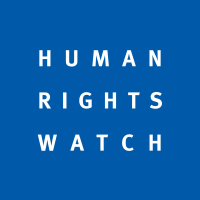[From the web] Progress in Philippines’ Media Murder Cases Just a Start


Marcos Administration Needs to End ‘Red-Tagging,’ Enhance Prosecutions
By Carlos H. Conde
Senior Researcher, Asia Division
Human Rights Watch
Activists call for justice and protection of media workers during a rally following the killing of radio journalist Percy Lapid, Quezon City, Philippines, October 4, 2022.
Advocates of media freedom in the Philippines got some good news within days of World Press Freedom Day on May 3. On April 29, police arrested a third suspect in the on-air shooting of radio broadcaster Juan Jumalon in Mindanao. And a court in Manila on May 6 sentenced the gunman responsible for the murder of the radio commentator Percival Mabasa, popularly known as “Percy Lapid,” to up to 16 years in prison. The Philippines normally draws global attention for having one of the worst records for impunity for killings of journalists.
The Presidential Task Force on Media Security proclaimed the Philippines to be a safer place for journalists. And President Ferdinand Marcos Jr. said that he will ensure journalists can do their jobs without fear.
The arrest in the Jumalon killing and the sentencing of Lapid’s murderer, who accepted a plea bargain, do not directly address the bigger issue in those two cases. And that is that the individuals who masterminded these two murders remain at large.
The Marcos administration needs to do a lot more if the Philippines is going to discard its reputation as one of the world’s most dangerous places to practice journalism and ensure an environment in which members of the media can do their jobs safely.
Harassment and threats to Filipino journalists also come from the authorities. At least one journalist, Frenchie Mae Cumpio, has been in police detention for more than four years. Many journalists have also been subjected to government “red-tagging,” the practice of accusing them of being members or sympathizers of the communist insurgency. Being red-tagged can lead to threats, unlawful surveillance, harassment and even death.
Rather than resting on the laurels of the pending Jumalon trial and the incomplete Lapid case, the Marcos administration needs to rachet up its efforts to protect journalists. It should immediately end the practice of red-tagging journalists and ensure harassment and killings of journalists are fully investigated and prosecuted, whoever is responsible. Foreign governments and donors have an important role to play in this and should scrutinize Philippine government claims on media freedom and the need to end impunity for attacks on the press.

